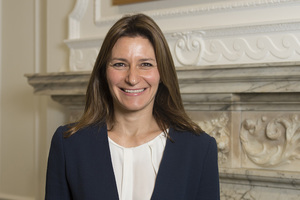Specialist Youth Justice degree for all officers working with children
Prison officers are being taught specialist skills to support their vital work with children who are in custody having committed serious offences.

- All Youth Custody Service officers will be specialists by 2023
- 114 have already achieved degree-level qualification and over 240 others are in training now
The £4.9 million scheme will see each officer working in youth custody become a Youth Justice Specialist after completing degree-level training.
This gives officers a greater understanding of child and adolescent development and is helping them to tailor their approach to each child’s needs.
Specialist insight means officers are providing better support and giving children more chance of changing their lives for the better.
Justice Minister Lucy Frazer said:
The number of children in custody has halved in the last 7 years thanks to better early intervention.
Those entering youth custody now have committed the most serious crimes, often have horrendous histories of suffering abuse and exploitation themselves, and can be extremely challenging to work with.
This extra training ensures officers can better help children overcome these problems and go on to become law-abiding adults – breaking the cycle of re-offending for future generations.
The Youth Custody Service was recently praised by HM Inspectorate of Prisons for adapting to COVID-19 and social distancing requirements. Young Offender Institutes were found to have responded swiftly to contain the spread of the virus and keep children and staff safe.
Officers who have qualified as specialists have used their training to support children in custody in these challenging circumstances.
Nicola Wynne, a prison officer at Feltham Young Offender Institute and one of the first officers to complete the foundation degree, said:
Completing the degree has given me so much confidence. I feel it has helped me to better understand the boys’ behaviour.
We don’t want to see young people returning to custody so the more we can do to address their offending while they are with us, the better.
We expected it to be especially challenging to engage the boys during the pandemic but the way they have accepted the restrictions is astounding. I believe the methods and knowledge from the degree have helped massively.
The Foundation Degree in Youth Justice which underpins the specialist role is delivered by Unitas and accredited by the University of Suffolk.
Officers must complete the first two modules to qualify, covering: understanding the needs of children, child and adolescent development, safeguarding, risk of harm assessments and reoffending.
Staff can then decide whether to complete the remaining two modules of the foundation degree which cover: how to effectively engage with young people while addressing the underlying factors which contribute to offending, and resettlement from custody back into the community.
The Youth Custody Service has increased staffing by a third in 3 years, with 289 more frontline personnel than December 2016.